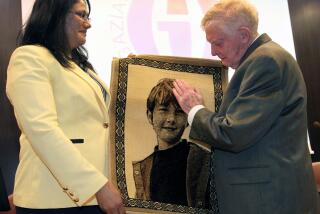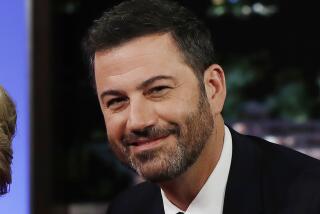Heart Recipient ‘Baby Moses’ Leaves Hospital
Loma Linda University Medical Center officials announced Thursday that “Baby Moses,” the youngest and the longest-lived infant ever to receive a heart transplant, was discharged from the hospital in “good condition” and without any indication of infection or organ rejection.
“A group of delighted relatives, including his grandparents, witnessed the occasion,” a hospital spokesman said.
Baby Moses received a human heart transplant Nov. 20 at the age of 4 days after being born with hypoplastic left heart syndrome, an invariably fatal condition in which the left side of his heart was essentially not functioning.
“Baby Moses remains free of infection and shows no indication of donor heart rejection,” Dr. Leonard Bailey, the surgeon who performed the operation, said in a prepared statement. “This is a unique infant. I share his family’s gratitude and humility as we’ve watched him grow these past weeks.”
The statement said the infant’s parents moved into the hospital with him last week and have provided him with all his requirements since. Bailey said he will continue to observe Baby Moses as an outpatient. “He’s a great joy to all of us.”
The university has not revealed the family’s identity nor their place of residence. Thursday’s statement reiterated that the family wants to maintain that privacy.
Bailey attracted worldwide attention in October, 1984, when he transplanted a baboon heart to an infant known as Baby Fae, who suffered from the same heart condition as Baby Moses. Bailey said at the time that he had not attempted to find a human donor because of the difficulty in finding donors of that age. Baby Fae died 20 1/2 days after the operation.
“Baby Moses reflects not only a continual scientific development in transplant surgery but also reminds us of the scarcity of donor hearts for newborns,” Bailey said in his Thursday statement.
“Thousands of babies with hypoplastic left heart syndrome have been born and died in this country since clinical heart surgery began worldwide. Perhaps Baby Moses’ experience will help raise consciousness of the medical community and scientists at large to the need for donors in this age. Many more of these babies could be saved.”
More to Read
Sign up for Essential California
The most important California stories and recommendations in your inbox every morning.
You may occasionally receive promotional content from the Los Angeles Times.










